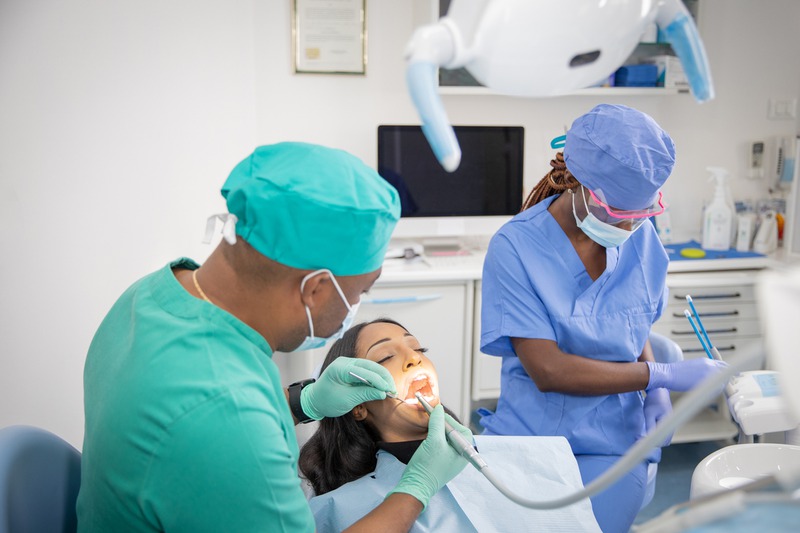
When Should You Seek an Emergency Dentist?
At some point, many of us experience dental problems, but understanding when a situation warrants immediate emergency dental attention is crucial. Dental emergencies can not only affect your oral health, but they also can have a significant impact on your overall well-being. It’s important to recognize the signs so you can act fast and get the help you need when you need it.
Recognizing Dental Emergencies
Firstly, what exactly makes a dental issue an ’emergency’? There are a few scenarios where seeking urgent dental care becomes non-negotiable. If you’re experiencing severe tooth pain, it’s a signal from your body that something is wrong, potentially requiring prompt medical attention.
Pay attention to it if the pain is intense or lasts more than a day. Also, if you’ve sustained an injury causing a tooth to become loose or knocked out, time is of the essence to save it.
Signs You Need Immediate Dental Assistance
Unbearable Toothaches
Toothaches that prevent you from eating, sleeping, or focusing at work are a clear sign that you should visit an emergency dentist. A severe toothache could indicate an abscess or infection that could spread and endanger your health.
Bleeding or Swollen Gums
While occasional gum bleeding can happen, if your gums are bleeding profusely, are swollen, or you have an injury to your mouth, you should seek professional dental advice immediately.
Broken or Cracked Teeth
If you have a break or crack in your tooth, it’s crucial to get it assessed quickly. Sometimes, what appears to be a harmless crack can affect the inner parts of the tooth, where nerves and blood supply are located.
A vital component in addressing dental emergencies is knowing where to find trusted professional help. In an urban setting, such as seeking out a Philadelphia dentist, you want to ensure that the professionals attending to your needs are not only skilled in their field but are easily accessible in times of crisis.
Understanding the Consequences
Ignoring dental emergencies can lead to increased pain, more complex procedures, and potentially permanent damage. For instance, a chipped tooth left unattended may not only lead to nerve damage but can become a breeding ground for bacteria, causing infection and possibly tooth loss.
Furthermore, dental issues can exacerbate other medical conditions. Poor oral health has been linked to diabetes, heart disease, and even stroke. This means that prioritizing your dental health is not merely about your teeth; it’s about your overall health, too.
Selecting the Right Dentist
When selecting an emergency dental service, consider factors such as their operating hours, proximity, and the scope of their services. Some practices offer a broader range of emergency treatments compared to others. Ensure they can manage not just trauma and pain relief but also more complex procedures if needed.
A dentist who listens to their patients can build trust and provide personalized care. A reliable dentist takes time to listen to your concerns and explains treatments in a way you understand. They should be focused on long-term relationships and preventative care, navigating you through any dental emergencies with compassion and expertise.
Services Typically Provided
Services that an emergency dentist should provide include, but are not limited to, repairing broken teeth, treating infections, and addressing tooth extractions in a pinch. It’s about immediate relief and effective, rapid treatment.
Taking Preventive Action
Preventing the need for an emergency dentist is obviously preferable. Regular check-ups, maintaining good oral hygiene, and taking precautions during sports or physical activities can significantly reduce the risk of dental emergencies. It’s the deliberate steps to protect your smile that have the most substantial impact.
The Right Time for Action
With dental emergencies, the right time for action is as soon as you notice warning signs. However, it’s also about preventative measures – don’t wait for a crisis to strike before finding a suitable dentist or familiarizing yourself with emergency dental services in your vicinity.
Steps to Take in a Dental Emergency
-
If a tooth is knocked out, keep it moist at all times, ideally placing it back in the socket without touching the root. Otherwise, place it in milk or between your cheek and gums.
-
Apply a cold compress to the affected area to reduce swelling if you’ve sustained a facial injury.
Home Remedies to Help Manage Pain
Until you can get professional help, managing pain with cold compresses and over-the-counter pain medication can be a temporary solution. Rinse your mouth with warm salt water to reduce swelling and cleanse affected areas, being cautious only to aggravate the problem once you see a professional.
Final Thoughts
It’s essential to stay calm and act promptly in a dental emergency; knowing how to identify one could help preserve your smile and overall health. Equally important is finding and keeping contacts for a trusted dentist who offers services for emergency dental care at your fingertips. Your dental health is a crucial aspect of your well-being — don’t hesitate to seek care when necessary.
